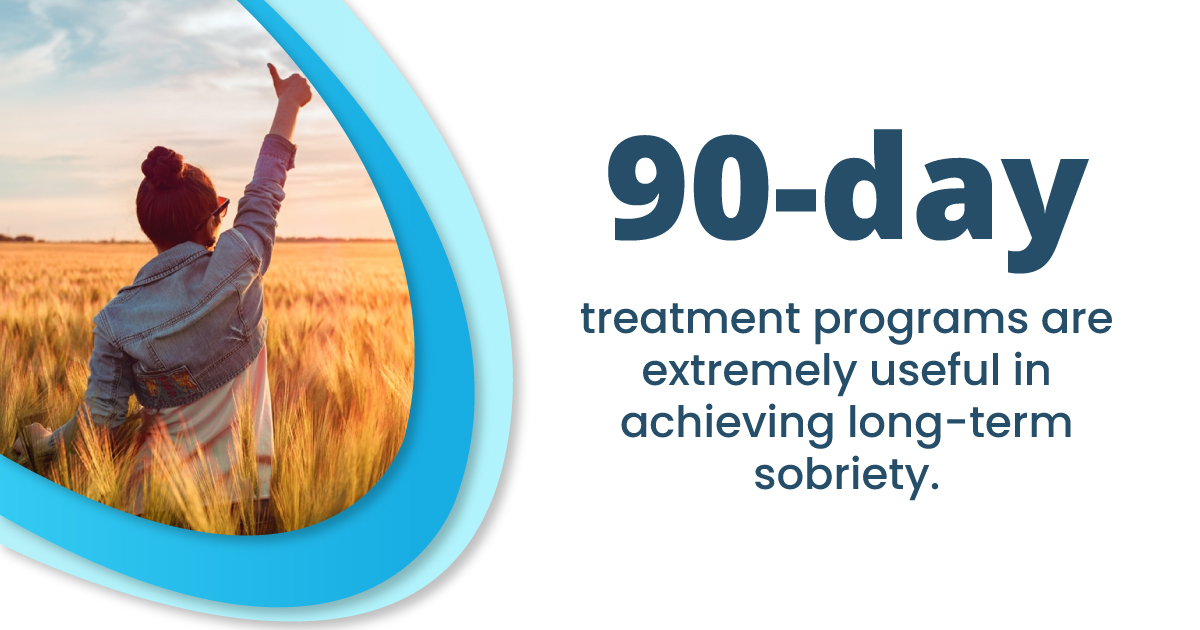
Rehab helps by educating people on keeping sobriety and having a healthy life without becoming dependent on alcohol. A mental health illness may be the root cause of alcohol addiction.
Rehab offers you a safe place to start your therapy. To deal with withdrawal symptoms, you need a safe environment. Rehab can be a secure and healthy environment for withdrawal and detox.
Key Takeaways
Addiction is a chronic illness. Treatment is frequently necessary for addicts to stay sober. People with alcohol use disorders can learn how to get and stay sober through rehab.
- To deal with withdrawal symptoms, you require a safe environment.
- Rehab provides a supportive and friendly environment.
- The length of a rehab program varies significantly from person to person.
- Long-term treatment programs are beneficial to achieve long-term sobriety.
Get professional help from The Haven Detox-South Florida. Contact us at (561) 328-8627 to learn more about our treatment programs.
Rehab Length With Best Results
Rehab duration differs from person to person and their condition. For people with a substance use disorder (SUD), the National Institute on Drug Abuse (NIDA) suggests at least 90 days of treatment. However, addiction treatment includes more than just residential treatment.
Several levels of care, varying in severity, are often provided to patients in addiction treatment.
For instance, a person would go through detox, then spend a month in inpatient rehab, returning home and receiving outpatient care several times a week.
The patient’s physical condition, underlying mental illnesses, and previous treatment experiences are all important considerations when deciding between inpatient and outpatient rehab.
You become part of the recovery community during rehab. AA and other 12-step programs, as well as support groups, may be beneficial to your sobriety.
Alcohol use disorder is curable. A long-term treatment plan should start in rehab. You or a loved one can recover from and overcome an alcohol addiction using coping mechanisms and support.
How Long it Takes to Detox from Alcohol
The first step of addiction recovery is detoxification. Detoxing from alcohol during recovery can take five days, two weeks, or longer. When detoxing, you’ll go through withdrawal symptoms.
Alcohol dependence causes deadly withdrawal during detox. Someone with an alcohol addiction likely has an alcohol dependence, meaning alcohol is required for your body to function.
Detoxification is the removal of drugs from your body. Once they are gone, you can get back to your regular routine.
Depending on how much alcohol you consume, withdrawal symptoms can change. If you also have problems with other drugs, your alcohol withdrawal may continue longer.
If you are struggling with substance abuse in addition to alcohol consumption, you can get assistance from rehab centers.
Alcohol Withdrawal Symptoms
Alcohol withdrawal symptoms may include:
- Nausea and vomiting
- Sleep issues
- Fatigue
- Increased heart rate
- High blood pressure
- Irritability
- Shakes and tremors
- Mood changes
- Headaches
- Loss of appetite
- Difficulty thinking
- Anxiety and depression
- Profuse sweating
Detoxification can be deadly when you try to do it at home on your own. When you detox in a treatment facility, you get help from professional doctors to manage withdrawal symptoms.
To help you stay sober after detox programs, your healthcare provider may recommend medication-assisted treatment (MAT). MAT can help you avoid cravings for alcohol during early recovery.
The Food and Drug Administration (FDA) has approved Naltrexone to treat alcohol use disorder. Naltrexone helps lower cravings as you go through treatment.
Inpatient Rehab Treatment Duration
The goal of inpatient rehab programs is to give a secure, sober surrounding and to put all patients at peace. Although long-term treatment centers are frequently private residential facilities, hospitals also host inpatient treatment.
Inpatient rehab typically lasts either 30-, 60-, or 90-days, but some facilities will house you for as long as you need to get on your feet again.
To keep everyone safe and establish a sense of responsibility in those working toward their recoveries, residential facilities frequently have certain rules for patients to accept while they are there.
Since physical activity may ease the therapy process and help patients keep a healthy lifestyle on a regular basis, most treatment centers have areas where patients can exercise.
Individuals typically have access to a wide range of amenities at a luxury addiction treatment facility. Alternative and holistic therapeutic methods are also frequently used in the course of treatment.
Many people are curious about how long any addiction treatment process takes, in addition to the variety of available treatment facilities and therapy modalities.
AA and other 12-step programs and support groups may be beneficial to your sobriety.
A long-term treatment plan must start in rehab. You or a loved one can recover from and overcome alcohol addiction with coping mechanisms and support.
Outpatient Rehab Treatment Duration
Alcohol treatment programs that use an effective approach to treating substance abuse are quite successful.
A continuum of care refers to a plan in which therapists continuously move the client to the next level of treatment by assisting them in making a seamless transition from a higher level of care to a lower level of care.
Outpatient programs are best suitable for those without severe addictions.
One hour of individual counseling and several hours of group therapy are provided weekly in outpatient programs, commonly referred to as outpatient programming (OP).
After completing a residential program, patients enroll in these programs to receive a full continuum of care and live a better life.
Outpatient services highlight relapse prevention, life skills, support networks, and the support of the coping mechanisms set in recovery.
Patients in OP will join therapy sessions 2–5 days a week while living at home. Depending on the needs of each patient and how well they are responding to treatment, these programs can last anywhere from one to six months.
Aftercare Treatment Program Duration
Rehabilitation from alcoholism also needs aftercare. Sober living and 12-step fellowships are two popular aftercare plans.
These kinds of therapeutic groups help people maintain relationships with others in recovery, holding themselves accountable for sobriety and getting support when required.
Therapeutic community interference used as part of alcohol rehabilitation aftercare depends on the support of others in recovery in the community to keep newly sober people on the right path.
Patients can stay in sober living facilities if they follow the house rules and maintain sobriety. However, once people have recovered to a certain degree, they will naturally outgrow sober living and be ready to live alone.
A sizable portion of those who take part in 12-step communities, like Alcoholics Anonymous (AA) or Narcotics Anonymous (NA), continue to go to meetings and engage in fellowship activities for years, if not the rest of their lives.
This is because long-term sobriety depends on extended care.
Benefits of Longer Rehab Programs
There are several reasons why rehab programs lasting 90 days or more are helpful. Addiction sufferers require a length of time to rid their bodies of the addictive chemical properly. The initial phase in recovery is detoxification.
Depending on the substance or substances used, medications may reduce withdrawal signs, making it as safe and comfortable as possible. The detoxification process is only the first step in returning back to normal life.
At the same time, it allows the person to remove alcohol or narcotics from the body safely; it doesn’t deal with the root causes of addiction.
The detox technique varies from facility to facility. It may take some time to complete, mainly when treating addiction to substances that can cause potentially deadly withdrawal symptoms, like alcohol or benzodiazepines.
A patient can take the time necessary to properly quit consuming a substance and learn more about the recovery process in longer rehab programs. Patients must be observed during detoxification to ensure they are not at risk and remain physically and emotionally stable.
A more extended recovery program can be advantageous because it gives people who battle addiction appropriate treatment to address the underlying causes of the addiction.
The person must learn why she is taking substances in order to break a habit successfully. More extended addiction rehab programs, as opposed to relatively brief ones, may give patients more time to examine the causes of their substance dependence.
Frequently Asked Questions (FAQ)
How long does it take a person to overcome their addiction?
Addiction recovery is a difficult task, but it is treatable. You can overcome the physical and mental issues on your recovery journey with the right treatment strategy and helpful tools.According to the current gold standard of care, overcoming addiction can take up to 90 days. During this period, your brain can be reset, you can learn the required skills for recovery, and you have time for the new patterns to become habits.
What is the average length of rehab?
The length of stay in a rehabilitation program will be different for everyone. Addiction treatment typically lasts 30 days, but some programs last 60 or 90 days. If you have a mild addiction, you may only need to stay in treatment for a few weeks.However, you may need to stay in residential rehab for several months if you have a severe addiction. The best way to determine how long you’ll need to stay in treatment is to talk to a doctor or a treatment specialist. They can help devise a treatment plan tailored to your or a loved one’s needs.
What’s the shortest time you can stay in rehab?
A 30-day rehab program is typically the shortest length of stay to get rid of addiction. While this may not seem like enough time to recover from addiction, a 30-day program can be very beneficial. It provides individuals with structure and support while they detox and learn how to live sober lives. It also helps them to learn advanced techniques to battle unfavorable situations and achieve long-term sobriety.
Get Help from The Haven Detox-South Florida
Addiction can cause serious health issues if left untreated. To treat addiction, you need to go to a rehab center. The Haven Detox-South Florida is here to help you.
We offer effective treatment programs, including detox, residential treatment programs, and SMART recovery, to help people with substance use disorders get back to a healthy life.
Furthermore, our customer support is available to answer your queries around the clock. They help you in making the admission process quick and easy.
Call us at (561) 328-8627 to speak with our admission counselors.
Click here to learn more about our treatment programs and service charges.






